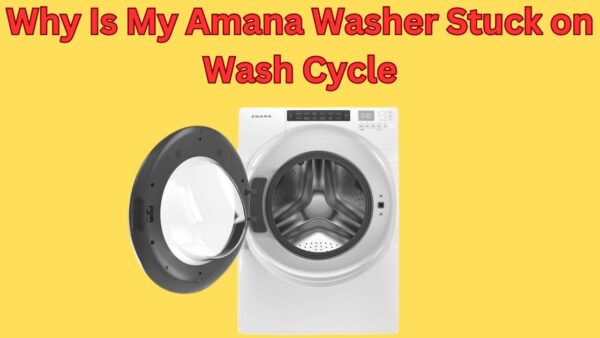Hi, dear visitor if your dishwasher keeps asking for salt
Don’t worry this is a common thing.
In this guide, we provide you with 10 very important tips for recovering this issue. So let’s know.
Bosch Dishwasher Keeps Asking For Salt

Faulty Salt Sensor
Cause
The salt sensor in your Bosch dishwasher is responsible for detecting the salinity levels in the water. Over time, this sensor can become dirty or damaged, leading to incorrect readings.
When the sensor fails, it may indicate that more salt is needed, even when the salt levels are adequate.
Solution
To resolve this issue, first try cleaning the sensor. Unplug the dishwasher, locate the sensor (usually at the bottom of the dishwasher), and clean it gently with a soft cloth.
If this doesn’t solve the problem, the sensor may need to be replaced. It’s best to contact a professional appliance repair service for this task as it involves disassembling parts of the dishwasher.
Replacing a faulty sensor should rectify the issue of your Bosch dishwasher constantly asking for salt.
Insufficient Salt Levels
Cause
Sometimes, the cause of a Bosch dishwasher asking for salt can be as simple as there being insufficient salt in the dishwasher.
The dishwasher uses salt to soften the water used in the cleaning cycles, which is vital for effective cleaning.
If the salt levels in the dishwasher are low, the dishwasher will often display a message asking for additional salt.
Solution
The solution in this case is straightforward – add more dishwasher salt.
You can do so by locating the salt reservoir (usually at the bottom of the dishwasher), unscrewing the cap, and adding the appropriate dishwasher salt until the reservoir is full.
After this process, you should run a cleaning cycle to allow the salt to dissolve and distribute evenly.
This simple procedure will most likely resolve your Bosch dishwasher’s consistent requests for more salt.
Please note, that using table salt is not recommended as it may contain additives that can harm your dishwasher.
Incorrect Salt Type Used
Cause
The type of salt used in your Bosch dishwasher can significantly impact its performance and maintenance.
Some types of salt, particularly those not designed for dishwashers, might not dissolve correctly and could potentially damage the dishwasher.
If you’re using the wrong type of salt, your dishwasher might continually prompt you to add more salt, even when the reservoir is full.
Solution
To address this issue, ensure you’re using a type of salt specifically designed for dishwashers.
These types of salt are designed to dissolve properly and soften the water effectively.
Avoid using table salt or any other type of salt not formulated for dishwasher use.
After replacing the salt, run a full cleaning cycle to allow the new salt to dissolve completely and distribute throughout the system.
By using the correct type of salt, you should notice a significant reduction in the frequency of salt addition prompts from your Bosch dishwasher.
It’s a simple fix that can save you from unnecessary frustration and potential repair costs.
Damaged Water Softening Unit
Cause
A damaged water-softening unit can be another reason why your Bosch dishwasher persistently asks for more salt.
The water softening unit, which uses salt as a key component, works to reduce the hardness of water used in the cleaning cycles.
If this unit becomes damaged or fails to operate correctly, it can lead to the dishwasher constantly requesting more salt, despite the salt levels being adequate.
Solution
For this issue, a thorough investigation is required to determine if the water-softening unit needs repair or replacement.
Any repairs or replacements should be carried out by a professional appliance technician.
It’s crucial to remember that attempting to fix this issue by yourself can lead to further damage if not done correctly.
Once the water softening unit is functioning properly again, the incessant salt request should cease, allowing your dishwasher to operate at its optimal efficiency.
Remember, a well-maintained water-softening unit will ensure that your Bosch dishwasher runs smoothly and efficiently.
Malfunctioning Control Panel
Cause
The control panel of your Bosch dishwasher serves as the primary interface, enabling you to operate and manage the dishwasher’s functions.
A malfunctioning control panel may be unable to accurately read and interpret the dishwasher’s salt levels, leading to persistent requests for additional salt even when the levels are sufficient.
This malfunction can be due to electrical issues, software glitches, or physical damage.
Solution
Addressing a malfunctioning control panel may involve different approaches based on the specific issue.
If it’s due to a software error, a simple reset of the dishwasher can potentially rectify the problem.
To do this, disconnect the dishwasher from the power source, wait for around 15 minutes, and then reconnect it.
If the issue persists or if there’s physical damage, it’s advisable to seek professional assistance.
Technicians can perform a comprehensive diagnostic and repair, ensuring the control panel is functioning correctly. Finally, keeping the control panel clean and dry can prevent potential malfunctions.
Regular maintenance and prompt repairs can prolong the life of your dishwasher and improve its performance.
Blocked Salt Dispenser
Cause
A blocked salt dispenser can be a common reason why your Bosch dishwasher is consistently asking for more salt.
Over time, hard water minerals or undissolved salt particles can accumulate in the dispenser, clogging it and preventing the dishwasher from effectively using the salt.
The dishwasher, not detecting the needed salt, continues to request more, creating an endless cycle.
Solution
The remedy for a blocked salt dispenser begins by first shutting down and unplugging the dishwasher for safety.
Next, locate and open the salt dispenser, typically found at the bottom of the dishwasher. Carefully clean out any visible residue or undissolved salt particles.
A small brush can be handy for this task. After cleaning, run a rinse cycle without dishes to ensure the residues are completely flushed out.
Regular maintenance and cleaning of the salt dispenser can prevent blockages, ensuring that your dishwasher operates effectively and stopping the continuous request for more salt.
Inaccurate Water Hardness Settings
Cause
The water hardness settings on your Bosch dishwasher are designed to regulate the amount of salt needed to soften the water effectively.
If these settings are incorrect and do not match the actual hardness of your tap water, your dishwasher may frequently request more salt.
Incorrect water hardness settings can lead to inefficient washing and potentially harm your dishwasher.
Solution
To correct inaccurate water hardness settings, refer to your dishwasher’s user manual to understand how to adjust the settings appropriately.
You may need to test your tap water’s hardness level for accurate calibration. Many hardware stores sell water hardness test kits that are easy to use and provide immediate results.
Once you have these results, adjust the water hardness settings on your dishwasher accordingly.
Proper calibration should help your dishwasher use salt more efficiently and reduce the frequency of salt addition prompts.
Regularly check and adjust these settings as the hardness of your tap water can change over time.
Faulty Salt Cap
Cause
A faulty salt cap might be the culprit behind your Bosch dishwasher’s incessant requests for salt.
The salt cap’s function is to secure the dishwasher’s salt reservoir, ensuring that salt is effectively used in the water softening process.
If this cap is cracked, damaged, or improperly sealed, it may cause the dishwasher’s salt levels to drop rapidly, leading to frequent salt prompts.
Solution
To resolve a faulty salt cap issue, first, ensure that your dishwasher is switched off and unplugged for safety reasons.
Then, inspect the salt cap for any visible damage or irregularities. If the cap is visibly damaged or not sealing properly, it will need to be replaced.
Replacement salt caps can be purchased from Bosch or authorized spare parts dealers. Once the new salt cap is securely installed, your dishwasher should stop asking for more salt frequently.
Regularly inspecting and maintaining the salt cap can help you avoid similar issues in the future.
Incorrect Dishwasher Settings
Cause
Your Bosch dishwasher comes equipped with a variety of settings to accommodate different wash and dry needs.
However, if these settings are incorrectly set, it might cause your dishwasher to persistently ask for more salt.
For instance, if you have inadvertently chosen a setting that requires a higher salt level for optimal performance, your machine could continue to request salt even if the quantity is sufficient for regular washes.
Incorrect settings can confuse your dishwasher’s understanding of its salt requirements, leading to continual requests for more salt.
Solution
The solution to this problem lies in correctly setting your dishwasher according to your specific wash demands.
Refer to your Bosch dishwasher’s user manual to understand the various settings and their implications.
The user guide will provide detailed instructions on how to select the most suitable setting for your wash needs.
Opting for the right setting not only ensures efficient washing but also helps in the optimal utilization of salt, thereby putting a stop to the machine’s incessant salt requests.
Regularly check your dishwasher settings before starting a wash cycle to avoid unnecessary prompts.
Defective Circuit Board
Cause
The circuit board, or the control board, is the brain of your Bosch dishwasher. It regulates all the functions, including controlling the salt level alerts.
A defective circuit board may send inaccurate signals, causing your dishwasher to frequently ask for more salt even when it’s not necessary.
This problem can occur due to a variety of reasons including a power surge, age, or moisture damage.
Solution
Fixing a defective circuit board is a fairly technical task. The first step is to unplug the dishwasher and access the control board, usually located behind the control panel.
Inspect the circuit board for any visible signs of damage such as burn marks or bulging capacitors. If damage is visible, the board will need to be replaced.
If no obvious damage is seen, you can try to reset the dishwasher, this sometimes can solve the issue. However, if the problem persists, it’s recommended to contact a professional appliance technician.
They have the necessary skills and tools to safely and effectively repair or replace the circuit board, restoring your dishwasher to its proper functioning.
Regular maintenance and prompt repairs can prevent further damage and extend the life of your Bosch dishwasher.
Conclusion
In conclusion, a Bosch dishwasher constantly asking for salt may be a signal of an imbalance in the water softening system.
The use of salt in a dishwasher helps to prevent the build-up of limescale and enhances the effectiveness of detergent.
However, it’s important to observe your machine’s specific requirements pertaining to salt usage, considering factors like your area’s water hardness level.
If the issue persists despite refilling the salt reserves, it could indicate a problem with the dishwasher’s sensor.
In such instances, seeking professional assistance is advisable to prevent further complications.
FAQs
Why does my dishwasher keep needing salt?
Your dishwasher might continuously require salt due to hard water conditions or possible issues with the machine’s sensor system.
Will Bosch dishwasher run without salt?
Yes, a Bosch dishwasher can operate without salt, but the presence of salt improves detergent effectiveness and prevents limescale build-up.
Where is the Bosch dishwasher salt sensor?
The salt sensor in a Bosch dishwasher is typically located in the salt reservoir, a compartment accessible from the base of the appliance.
Bosch Washing Machine Won T Start Beeps Twice
Bosch Dishwasher Flashing Red Light
Ge Dishwasher No Power No Lights
Bosch Washing Machine Won’t Start Just Beeps
Bosch Washing Machine Tap Symbol Flashing
Dishwasher stops after 2 minutes
Indesit Dishwasher Flashing Lights 1 and 3
Dishwasher Stops Mid Cycle and Lights Blink
Bosch Dishwasher Not Spraying Water

Name: Joseph Title: Owner and Founder Website: myappliancegeek.com
Biographical Info:
Joseph, the creative mind and founder behind myappliancegeek.com is a distinguished expert in the field of home appliances and technology.
Education: Joseph holds a prestigious degree in Appliance Engineering from a renowned institution in the United States, [Stanford University], where he gained a profound understanding of appliance design, mechanics, and technology.
Professional Experience: Joseph’s professional journey spans over [18 ] years in the home appliance industry. His extensive experience includes working with industry-leading appliance manufacturers, prominent retailers, and appliance repair services.
Entrepreneurship: In [2000], Joseph founded myappliancegeek.com, a platform dedicated to providing comprehensive information, advice, and solutions for those seeking guidance in the world of appliances.
Passion for Appliances: Joseph’s unwavering passion for home appliances stems from his belief in their pivotal role in improving our quality of life.
Contributions to the Industry: Joseph’s commitment to the home appliance industry is evident through his extensive writing and speaking engagements.
Community Involvement: Joseph is not only an online presence but also an active member of the community, frequently engaging in outreach programs, local workshops, and charitable initiatives.


